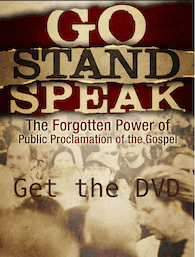By T.M. Moore | October 13, 2011
“The heart is deceitful above all things, and desperately sick; who can understand it?” Jeremiah 17:9
 In the debate about alternative lifestyles Christians are often labeled as “hateful.” That is, because we take our stand on Scripture, and insist that, the “needs” of people or the findings of social science or the changing temper of the times notwithstanding, we must not overthrow the sexual, moral, and familial practices and institutions which have promoted Western freedom and flourishing for two thousand years – because we insist on this we are charged with trampling the feelings of others, and with being hateful and uncaring.
In the debate about alternative lifestyles Christians are often labeled as “hateful.” That is, because we take our stand on Scripture, and insist that, the “needs” of people or the findings of social science or the changing temper of the times notwithstanding, we must not overthrow the sexual, moral, and familial practices and institutions which have promoted Western freedom and flourishing for two thousand years – because we insist on this we are charged with trampling the feelings of others, and with being hateful and uncaring.To be fair, this is in fact the posture we often strike in this debate. We seem always to be angry, storming around and heaping scorn on those who disagree with us. There is very little of the kind of soft and gentle answer or gracious and reverent speech that ought to characterize our participation in this public debate (Prov. 15:1; 2 Tim. 2:24-26; Col. 4:6; 1 Pet. 3:15). We demonize those who disagree with us rather than invite them into a thoughtful and reasoned discussion of the questions in this debate. And so, because we seem to be hateful, we set ourselves up for being labeled as such, and, in the process, effectively disqualify ourselves from a place at the table over this and many other matters of social policy and practice.
The moment feelings enter the debate, pretty much all bets are off. Human beings are not very good at keeping our feelings in check. On the Christian side we become defensive and self-righteous, and we denounce all those who disagree with our view or threaten the settled order. On the alternative lifestyles side, feelings are used either to create sympathy or to intimidate. The many media shots of smiling, caring, homosexual couples plays the feeling card in a way intended to say, “See this? Isn’t this what you’d want for any marriage relationship?” And in the public debate, feelings of outrage, anger, and resolution are intended to intimidate would-be opponents into silence. Such tactics have had remarkable success.
Certainly there is a place for feelings in this debate – feelings of deep conviction, moral certainty, compassionate understanding, love, forbearance, and urgency. But shall such feelings become yet another plank in the shaky foundation of public policy decision-making? The media, which largely supports the alternative lifestyles agenda, plays the feelings card continuously – in news reports, on the talk shows, and in prime time programming. As Neil Postman and others have argued, the media offer a powerful conduit into human emotion, bypassing reason and sound judgment to encourage actions based primarily on feelings. The experience of other societies in the previous century should warn us against yielding judgment to the power of emotion, whether fueled by high-powered rhetoric and spectacular public displays, lofty but false ideals, or an evening’s news or entertainment.
The Christian insists that we cannot trust mere feelings; their tendency is to deceive and mislead us. Instead, feelings must be made subject to right thinking, grounded in convictions that are true and reliable. If what we are feeling strays from the foundation of unchanging moral truth, then we must not alter the truth, but, instead, reconsider and reconstruct the feelings. No, our opponents in this debate won’t want to hear this, and probably won’t agree. But we must press the point all the more fervently and consistently, that, while feelings matter, and must be considered, they must not be the determining factor in matters of public policy.
We do not have to come across as hateful as we invite people to reflect on the reliability of feelings, or when we ask them to consider whether what they are feeling about this issue should be accepted as a sure foundation for promoting social change. And we should not hesitate to explain the sound teaching and common sense of Scripture with respect to the role of emotions in human life.
Download the series "Alternative Lifestyles." Click here:
 Alternative Lifestyles
Alternative Lifestyles  For more insight to this topic, get the book, How Now Shall We Live?, by Charles Colson and Nancy Pearcey. Or read the article, “Family Values vs. Family Values,” by Charles Colson.
For more insight to this topic, get the book, How Now Shall We Live?, by Charles Colson and Nancy Pearcey. Or read the article, “Family Values vs. Family Values,” by Charles Colson.




comments
0 Responses to "Alternative Lifestyles"Post a Comment